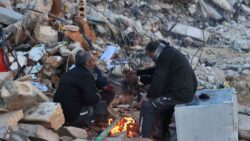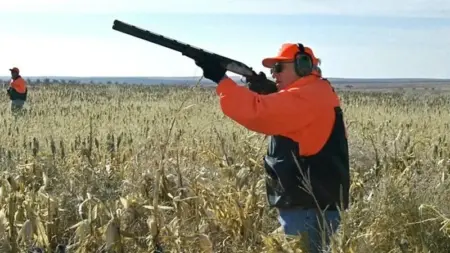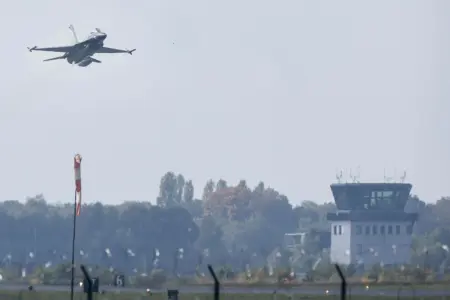Turkey earthquake: Icy weather hampers rescue efforts as death toll tops 20,000
The devastating earthquakes that struck on Monday have now claimed the lives of more than 20,000 people across Turkey and Syria. The UN is warning the disaster’s full extent could be much bigger as true numbers are unclear.
Rescue teams are desperately searching through the rubble looking for survivors, but efforts are also battling the freezing, icy conditions and time is running out – now four days on since the quakes, hopes are fading.
The freezing cold weather threatens the lives of those who have survived as thousands are without shelter, water and food.
International response to quake
A major international relief effort has picked up the pace, with the World Bank pledging $1.78bn in aid to Turkey including immediate finance for rebuilding basic infrastructure and supporting those affected by the earthquakes.
On Thursday, the first UN humanitarian aid crossed the border into Syria. It’s the only crossing that’s available to the UN aid without travelling through areas controlled by the Syrian government forces.
Efforts on the ground in both countries face further issues with a number of logistical hurdles including vehicle shortages and destroyed roads.
The UN chief Antonio Guterres warned the full extent of the devastation was still “unfolding before our eyes”, especially in Syria where a long civil war has devastated the country for years.
He said more help was on its way and urged the UN Security Council to allow supplies to be delivered through more than one border crossing.
“This is the moment of unity, it’s not a moment to politicise or to divide but it is obvious that we need massive support,” he said.
Turkey’s earthquake could see second disaster
Officials said on Thursday that 17.600 people have died in Turkey and the death toll was at least 3,377 in Syria.
Tens of thousands of people across both countries are spending another night taking refuse in bitterly cold conditions in makeshift shelters – having been made homeless by the quakes.
The World Health Organization (WHO) warned a second humanitarian disaster will strike unless survivors can get access to shelter, food, water and medicine quickly.
Whilst in Syria, communities depend on water reservoirs, which were the first to fall. The country needs to replace the reservoirs or face cholera outbreaks.





